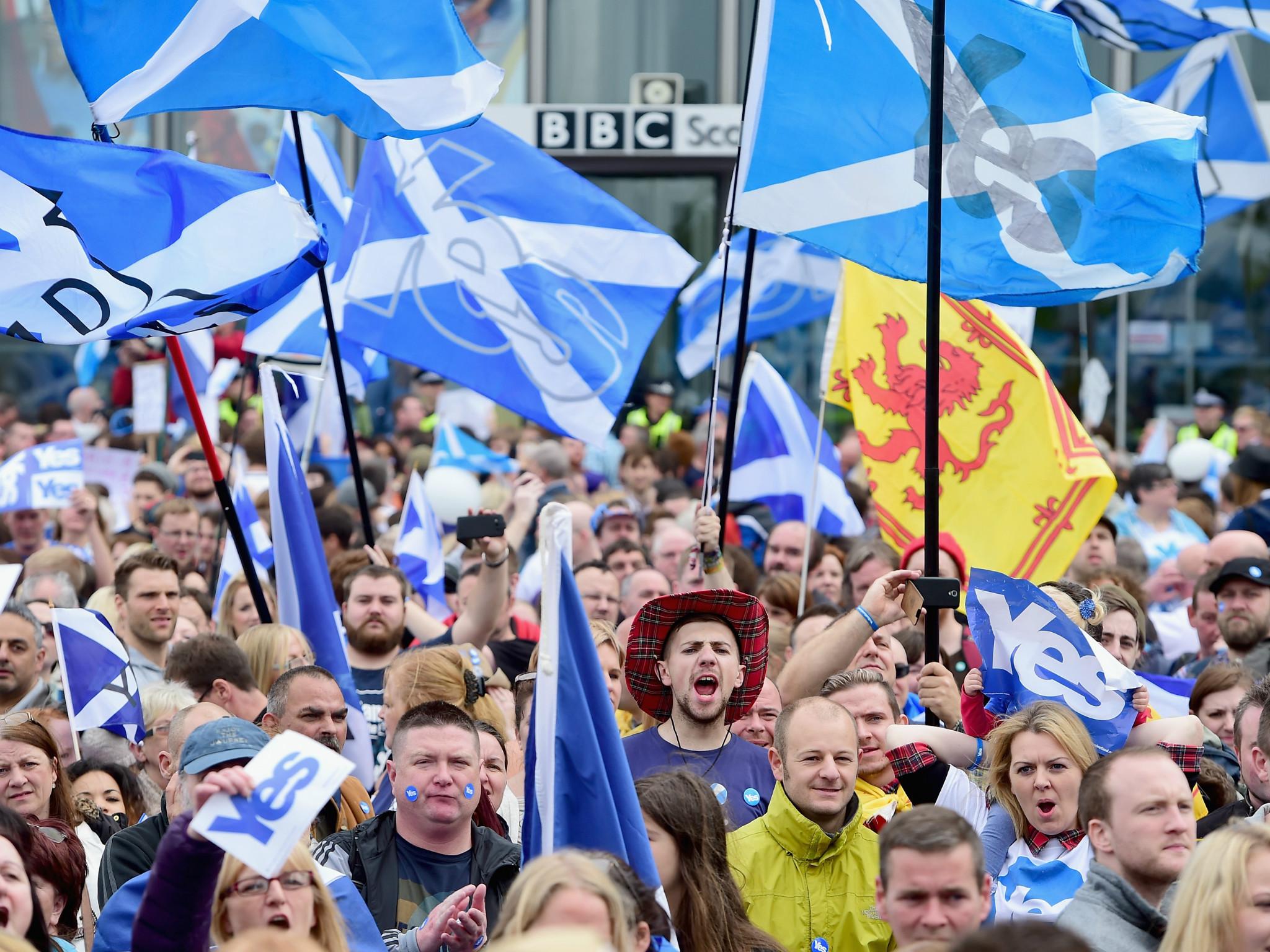Does Brexit make Scottish independence more likely?
Politics explained: With Boris Johnson in Downing Street and no deal looming, voters may shift towards independence

The fate of Northern Ireland has been at the heart of the Brexit debate for some time, but in the dying days of Theresa May’s premiership, Scotland is keeping senior Conservatives up at night.
Ministers have been racing across the border over the past week, with a warning over the union from May in Stirling, and attempt by her would-be successors, Boris Johnson and Jeremy Hunt, to woo voters in Perth.
May’s de facto deputy, David Lidington, made an unusually outspoken intervention ahead of the hustings, warning that the union was under “greater strain” than he had ever seen.
In an interview with the BBC, he said: “The threat to the union comes not just from Scottish nationalism or pressure for Irish unification; it comes from indifference amongst English opinion to the value of the union. There is a sense in which we take the union for granted.”
He added: “Sometimes there are too many people in England, including in my party, who assume that you can be dismissive of the contribution that Scotland or Northern Ireland makes.”
David Mundell, the Scottish secretary, issued a public warning to Johnson on Sunday that Nicola Sturgeon would welcome a no-deal Brexit with “unseemly glee”, saying a disorderly exit would “fuel nationalist claims of a UK that is insensitive to Scotland’s needs”.
These warnings should carry some weight, as Lidington is responsible for maintaining relations between the devolved administrations and the UK government, while Mundell is responsible for Scottish affairs at Westminster.
Tensions have existed since the Brexit referendum, as Scotland voted overwhelmingly to remain in the EU, while England and Wales voted to leave. Northern Ireland also backed remaining in the EU.
The Scottish government has long argued that there is a fresh case for a Scottish independence referendum, as the Brexit vote represented a material change in circumstances from the 2014 vote.
Sturgeon, the SNP leader, has called for a fresh independence poll to be held in 2021 if the UK leaves the EU, as the nationalists believe the democratic wishes of the Scottish people are being ignored over Brexit.
These arguments were given short shrift by Westminster and public opinion in Scotland did not appear to have shifted decisively towards independence.

However, the influential pollster Sir John Curtice has suggested that this might be changing. An overview of polls by the elections expert revealed a marked swing in favour of independence among people who voted to remain in the EU referendum.
Curtice says: “It would seem that the Brexit impasse has motivated some Remain supporters in recent months to re-evaluate their attitudes towards the union.
“If so, then we do not need to rely on the answers to hypothetical polling questions to conclude that the outcome of the Brexit process could potentially change the balance of support for independence versus staying in the union – and so determine the future of the British state.”
Crucially, independence also becomes the most popular choice in the event of Johnson becoming prime minister or a no-deal Brexit, according to the analysis on the WhatScotlandThinks website.
With Johnson’s coronation all but assured, and his promise to leave the EU on Halloween, with or without a deal, the dial may well shift towards independence.
Join our commenting forum
Join thought-provoking conversations, follow other Independent readers and see their replies
Comments
Bookmark popover
Removed from bookmarks